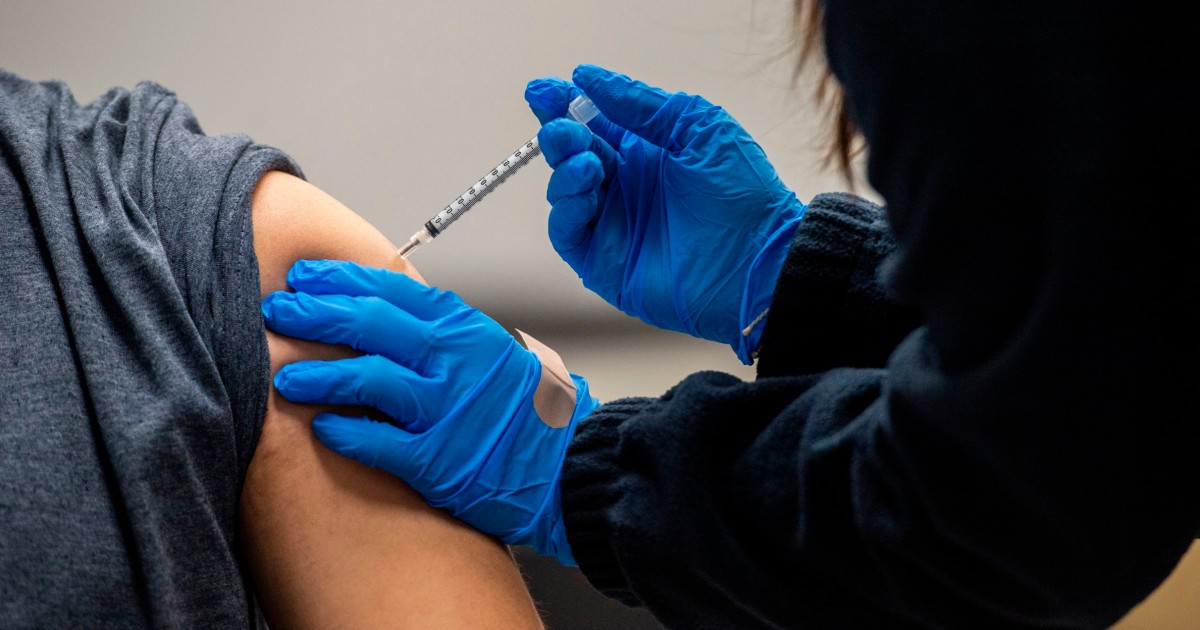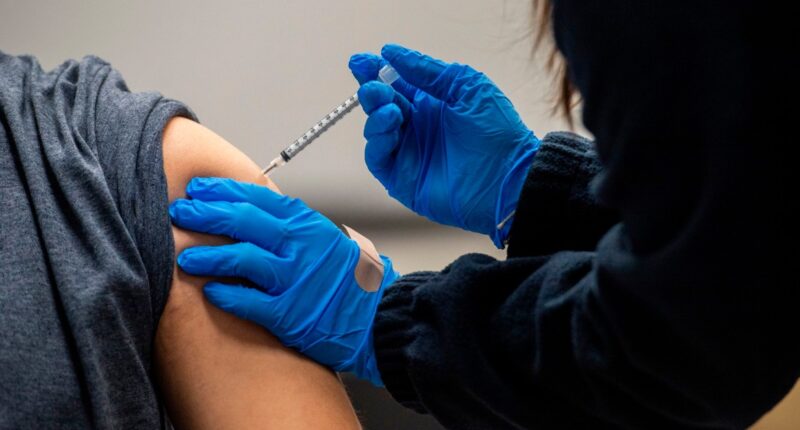
Thousands of people say they’ve developed tinnitus after they were vaccinated against Covid. While there is no proof yet that the vaccines caused the condition, theories for a possible link have surfaced among researchers.
Shaowen Bao, an associate professor in the physiology department of the College of Medicine at the University of Arizona, Tucson, believes that ongoing inflammation, especially in the brain or spinal cord, may be to blame.
Bao, a longtime tinnitus sufferer and a representative of the American Tinnitus Association’s scientific advisory board, has studied tinniuts for more than a decade.
A Facebook group of people who developed tinnitus after getting a Covid vaccine convinced Bao to look into the possible link. He ultimately surveyed 398 of the group’s participants.
The cases tended to be severe. One man told Bao that he couldn’t hear the car radio over the noise in his head while driving.
Along with ringing in their ears, participants reported a range of other symptoms, including headaches, dizziness, vertigo, ear pain, anxiety and depression. Significantly more people first developed tinnitus after the first dose of the vaccine, compared with the second.
This suggests “that the vaccine is interacting with pre-existing risk factors for tinnitus. If you have the risk factor, you will probably get it from the first dose,” Bao said.
He is still analyzing the results and has not published any preliminary findings.
Is there a link between vaccines and tinnitus?
As of Sunday, at least 16,183 people had filed complaints with the Centers for Disease Control and Prevention that they’d developed tinnitus, or ringing in their ears, after receiving a Covid vaccine.
After internal reviews of the reports, the CDC “did not find any data suggesting a link between Covid-19 vaccines and tinnitus,” an agency spokesperson said in an email.
The CDC has not, however, made those reviews public, as it did after looking into other possible vaccine side effects, such as inflammation of the heart or myocarditis — frustrating leading vaccine expert Dr. Gregory Poland, founder and director of the Mayo Clinic’s Vaccine Research Group in Rochester, Minnesota.
“Why has the CDC not done all of the research that they should do on this and published it?” Poland said.
Poland, who was stricken with tinnitus after he received his Covid vaccines two years ago, suggested that the CDC remains “unconcerned” about these reports of tinnitus.
In his case, the noise sounds like a constant, shrill whistle. The din has not improved, and continues to affect his sleep and quality of life.
“There are some days where I’m busy or haven’t been exposed too much in the way of noise, where it’s tolerable. Other days, I could just scream,” he said.
Since speaking publicly about his experience, Poland receives emails from strangers “almost daily” who say they experience the same constant noises and believe it was triggered by the Covid vaccines.
“You don’t ever get over tinnitus,” he said.
What causes the human brain to conjure up sound that affects a person’s daily life?
A team at Stanford Medicine Molecular Neurotology Laboratory in California has begun studies to find the potential underlying mechanism of tinnitus. The goal is to find a biomarker that may help identify a person at higher risk of developing tinnitus after receiving a vaccine.
“We think that many forms of tinnitus reflect some damage in the inner ear,” said Dr. Konstantina Stankovic, an otolaryngologist-head and neck surgeon who is leading the new research. “And then the brain tries to compensate for the damage and starts to make sound of its own,” she said.
The study is in its earliest phases. Stankovic’s team has collected blood samples from fewer than 20 patients so far.
“We may not find anything,” she said. “Or it could be a home run. We just don’t know. We are working as hard as we can to answer these questions.”
What is tinnitus?
Tinnitus is common in the United States, affecting as many as 25% of adults, according to the National Institute on Deafness and Other Communication Disorders. Children can also develop the condition.
It’s a phantom noise in a person’s ear, meaning that no one else can hear what the patient is hearing.
There are many potential causes, including age-related hearing loss, certain medications, ear infections and high blood pressure. The CDC’s Vaccine Adverse Event Reporting System has received reports of tinnitus after other vaccines and infections, including Covid, as well.
“It’s not surprising for the CDC to receive reports of tinnitus in the Vaccine Adverse Event Reporting System after vaccination, including COVID-19 vaccination,” a CDC spokesperson said in an email.
While a study published last fall found the risk of tinnitus after receiving the Covid vaccine is “low,” that doesn’t mean it’s nonexistent.
Poland believes the virus’s spike protein may play a role, the same way it could continue to wreak havoc in the body in other ways.
“After mRNA vaccines, there is some level of spike protein that circulates,” Poland said. Could it be much like the spike protein in the heart that leads to myocarditis? Could the same thing happen in the inner ear?”
Researchers at Yale University have begun enrolling participants in a study to learn more about symptoms of long Covid, including tinnitus.
“There’s a heterogeneity of manifestations of long Covid,” Dr. Harlan Krumholz, a professor of medicine at Yale University and clinical long Covid researcher, said. “We really need to be able to map this and organize it in a way that we can understand it.”
Anecdotally, people have long reported a link between Covid infection and odd tingling or buzzing in different parts of their body. Krumholz speculates that tinnitus may be caused by internal vibrations in the ear.
“The strategy we’re taking is both to listen very carefully to the experience of people who are suffering and to try to correlate their experiences with what’s going on inside their bodies,” he said. “These people are suffering.”
How to handle phantom sounds
There is no diagnostic test for tinnitus, but experts suggest first seeing an ear, nose and throat specialist to rule out any underlying causes of ringing in the ears, such as an ear infection or high blood pressure.
Otherwise, there are no standard, proven ways of treating tinnitus.
Poland, who is also a minister, finds meditative prayer helpful in quelling the noise. He also listens to calming, classical music or “orange noise” in his air pods.
“Then I can sort of relax,” Poland said. “I actually visualize a volume dial turning that noise down. It’s always an effort, but it helps, at least temporarily.”
Follow NBC HEALTH on Twitter & Facebook.
Source: | This article originally belongs to Nbcnews.com









